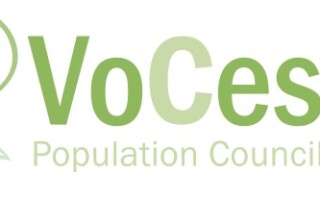Since 1979, the Population Council has worked in Mexico to improve reproductive health through high-quality research, program evaluation, and technical partnerships with national and state governments and civil society.Through participation in the National Pro-Choice Alliance for Mexico, the Council provided evidence about abortion attitudes, access, and incidence in Mexico that played an important part in passage of the landmark 2007 reform to decriminalize early abortion in Mexico City and subsequent decriminalization in other states.Since 2015, the Mexico office implements the Council’s safe space model to strengthen life skills, promote autonomy, and improve the quality of life among indigenous adolescent girls.
In 2020, the office launched VoCes-19, a web-based longitudinal study to provide information on the impact of the COVID-19 pandemic on Mexican youth, including violence and mental health. The survey also collects data on youth resilience, perceptions of climate change, and exposure to climatic events.
In 2022, the office, in partnership with the Population Council Kenya and the GIRL Center, initiated a participatory, young feminist-centered study to provide insights on the landscape and impact and of young feminist organizing in Kenya and Mexico.As part of the Council’s PERCC Initiative, the office support continued scientific research to understand the intersection of inequality and climate and demographic change.Other work has identified and articulated the needs of pregnant women living with HIV; informed the introduction of emergency contraception into the public health system in Mexico; and documented inconsistent and incorrect use of magnesium sulfate, a life-saving treatment for pre-eclampsia and eclampsia.




